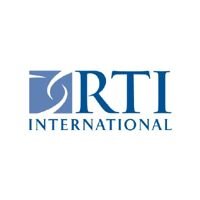UNFCCC Katowice Committee of Experts on the Impacts of the Implementation of Response Measures (KCI)
CCS is working with the UNFCCC “Katowice Committee of Experts on the Impacts of the Implementation of Response Measures” (KCI) to develop a case study on the scope and results of mixed approaches for the assessment of impacts of climate mitigation response measures. These approaches combine quantitative and qualitative assessments based on transparent and replicable methodologies.
Africa Low Emissions Development Strategies Project
In partnership with the United Nation Environment Program (UNEP), the European Commission, the Africa LEDS Partnership, and the LEDS Global Partnership (LEDS GP), CCS is providing technical training and capacity building, analytical models, systems, and framework development, and learning by doing based technical assistance to governmental and technical institutions in Cameroon, Ivory Coast and the Democratic Republic of the Congo….

Bangladesh LEDS Planning
CCS has partnered with the LEDS GP (and NREL as co-secretariat) to conduct in-country LEDS-related assistance to Macedonia, Democratic Republic of Congo and Bangladesh. CCS engaged with government leaders, stakeholders, and donors to assess gaps and opportunities to develop a Green Growth Strategy to meet their own development priorities and needs including NDC implementation.

Cameroon, Africa LEDS Project
CCS is currently working with government leaders and local technical teams in Cameroon, Cote D’Ivoire, and the Democratic Republic of the Congo to establish modeling and analytical capacity and tools, specific to each country’s context to inform concrete LEDS policies and their implementation for low emission socio-economic development consistent with Nationally Developed Contributions (NDCs) under the Paris Agreement. Models and training material are scaled at the regional level.

China Low Carbon Development Planning Project
Since 2009, the Center for Climate Strategies (CCS) has partnered with the Beijing-based Global Environmental Institute (GEI) to support China's advancement of climate change action. In 2011, the U.S. State Department and China's National Development and Reform Commission (NDRC) formally recognized this U.S.-China partnership as an official EcoPartnership.

CIOESTE, São Paulo, Brazil
CCS and Winrock are embarking on pathways development support to seven selected regions in in the LAC region that are members of the Under2 Coalition. Through a step-wise approach that involves substantial engagement of public and private sector stakeholders, the works focuses on achieving optimized and transformative pathways to reductions in greenhouse gas emissions consistent with under 2 degrees Celsius climate stabilization levels, and complete, accurate and cost-effective Measurement, Reporting, and Verification (MRV).

Eastern Europe Regional LEDS Platform
CCS supported the formation of a web-based regional platform for LEDS development, capacity building, knowledge sharing and partnership formation in Eastern Europe in partnership with RTI International.
Electric Vehicles Pilot Program for Trinidad and Tobago
The Center for Climate Strategies (CCS) and over 30 energy and infrastructure business leaders, government officials, financiers, policy advisors and academics in Trinidad and Tobago are developing an Electric Vehicles (EVs) pilot project for the country as part of the Private Investment Mobilization (PIM) training program conducted by CCS. The EVs pilot will be designed to result in an actionable and financeable Low Carbon Development (LCD) program in Trinidad and Tobago. Program design and implementation mechanisms will include revenue generating mechanisms and blended finance structures to attract public and private sector investments at scale.
Global Green Growth Program
In 2013, CCS acted as a co-author and key expert for the global report "Green Growth in Practice: Lessons from Country Experiences" commissioned by The Global Green Growth Initiative. The report expands awareness and understanding of the techniques and conditions for success needed to advance green growth in unique locations worldwide.

Nature Based Solutions for the UN Development Programme
CCS provided technical assistance to the United Nations Development Programme to revise and simplify its cost and benefit assessment tool for Nature Based Solutions.
Private Investment Mobilization and Financial Analysis Tool
We are working on a multi-region, pilot-based program designed to incubate comprehensive curriculum and tools for public and private sectors to develop business financing models for Low Carbon Development actions across sectors, and ultimately mobilize investments for standardized and aggregated projects and products (Private Investment Mobilization – PIM - project).
Rwanda Least Cost Power Generation and Net Zero
As part of a consortium led by the Research Triangle Institute (RTI), we are supporting USAID's Power Africa, East Africa Energy Program (EAP), including the East Africa region and the nations of Burundi, Democratic Republic of the Congo, Eritrea, Ethiopia, Kenya, Rwanda, Somalia, Tanzania, and Uganda. Our work includes a range of technical and collaborative activities designed to expand affordable and reliable electricity services in East Africa, with the ultimate goal of supporting development priorities, including inclusive economic growth, security, and improved health and education outcomes.
South China Renewable Energy Implementation Project
Built upon previous US-China collaboration on the development of the China Subnational Low Carbon Development Planning and Analysis Toolkit and related training and technical assistance activities conducted since 2009, CCS, the Global Environmental Institute (GEI), and the Guangdong Institute for Energy Conversion of Chinese Academy of Science (GIEC) cooperate on a project for South China Renewable Energy (RE) Implementation.
Under2 Coalition for Climate Change Pathways
CCS and Winrock are supporting pathways development to seven selected regions in the LAC region that are members of the Under2 Coalition. Through a step-wise approach that involves substantial engagement of public and private sector stakeholders, the works focuses on achieving optimized and transformative pathways to reductions in greenhouse gas emissions consistent with under 2 degrees Celsius climate stabilization levels, and complete, accurate, and cost-effective Measurement, Reporting, and Verification (MRV)….
United Arab Emirates GHG Inventory Verification
The Center for Climate Strategies conducted a technical review of the Abu Dhabi Emirate greenhouse gas (GHG) inventory for calendar year 2012. The scope of the review addressed the methodologies adopted and applied for estimating emissions in each sector, data acquisition, geographic boundary considerations, reporting format. The reporting of emissions in each sector was evaluated in terms of completeness (sources and GHGs covered); credibility; accounting issues (direct versus indirect sources); comparability with previous or regional emissions reports; accuracy; and confidence (in terms of the use of the reported data for GHG mitigation planning purposes). CCS provided a final set of recommendations to address issues that were identified during the review.

USAID Guatemala Enhancing Capacity for Low Emissions Development Strategies (EC LEDS) Project
From 2015 through early 2019, the Center for Climate Strategies (CCS) supported RTI International with the design, planning, analysis and implementation of the Guatemala Low Emissions Development Strategies (GLEDS) program of the US Agency for International Development (USAID) to meet the country’s NDC commitment, and sustainable economic and social development goals.
The GLEDS plan represents a successful, replicable and scalable template to spur countries’ economic and social development while meeting environmental needs and goals.
Yemen GHG Inventory Verification
The Center for Climate Strategies conducted a technical review of the Abu Dhabi Emirate greenhouse gas (GHG) inventory for calendar year 201o. The scope of the review addressed the methodologies adopted and applied for estimating emissions in each sector, data acquisition, geographic boundary considerations, reporting format. The reporting of emissions in each sector was evaluated in terms of completeness (sources and GHGs covered); credibility; accounting issues (direct versus indirect sources); comparability with previous or regional emissions reports; accuracy; and confidence (in terms of the use of the reported data for GHG mitigation planning purposes). CCS provided a final set of recommendations to address issues that were identified during the review.
